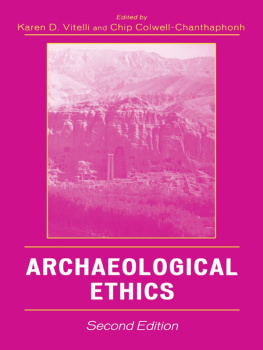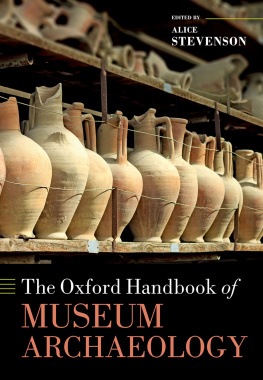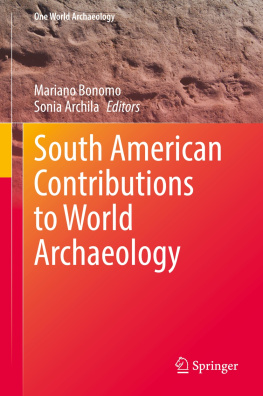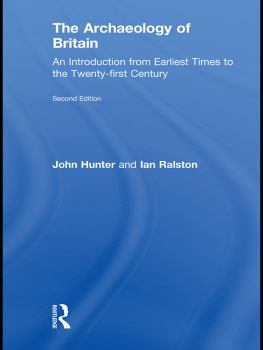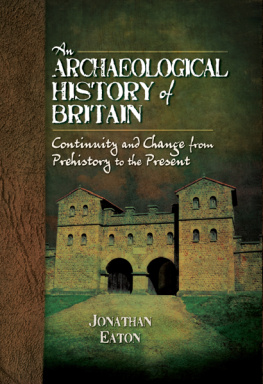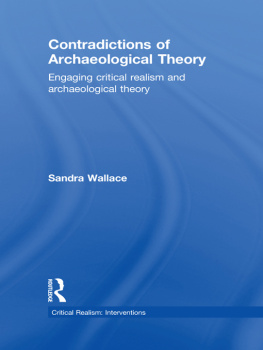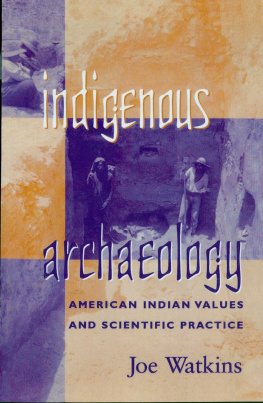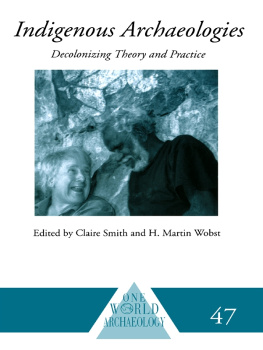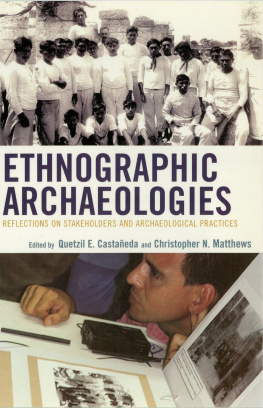About the Contributors
Roger Atwood is a journalist who writes on the antiquities trade.
Michael Bawaya is the editor of American Archaeology .
Maria Braden was a journalism professor at the University of Kentucky. She passed away in 2004.
Michel Brent , trained in the law, is a career journalist who writes for Le Vif-LExpress , a Belgian news magazine.
Kathleen Bryant is a freelance writer whose work has appeared in Arizona Highways , Plateau Journal , and Sunset.
Arlen F. Chase and Diane Z. Chase teach anthropology at the University of Central Florida and do field work in Belize.
Chip Colwell-Chanthaphonh received his Ph.D. in anthropology from Indiana University in 2004. Since 1993, he has conducted field and laboratory work in Arizona, Wisconsin, Belize, and Belgium. His written work has appeared in American Anthropologist, International Jonrnal of Cultural Property, Museum Anthropology, American Indian Quarterly, Archaeologies, Anthropological Quarterly, and the Journal of Social Archaeology. He is also the author (with T. J. Ferguson) of History Is in the Land: Multivocal Tribal Traditions in Arizonas San Pedro Valley. During the preparation of this volume, he was a fellow at the Center for Desert Archaeology, a private nonprofit organization in Tucson, Arizona. He is now a visiting scholar at the American Academy of Arts and Sciences in Cambridge, Massachusetts.
Andrew Curry is a general editor at Smithsonian.
James P. Delgado is executive director of the Vancouver Maritime Museum.
Blake Edgar is coauthor, with Richard G. Klein, of The Dawn of Human Culture (2002) and, with Donald Johanson, of From Lucy to Language (1996).
Stacey O. Espenlaub is NAGPRA coordinator at the University Museum, University of Pennsylvania.
Brian Fagan is professor emeritus at the University of California, Santa Barbara.
Micah Garen is a journalist, photographer, and documentary filmmaker in New York.
Juliet Golden is a freelance writer based in southwest Poland.
Yuval Goren is associate professor of archaeology and ancient Near Eastern cultures at Tel-Aviv University.
Julie Hollowell is a Killam Fellow (2006-2008) at the University of British Columbia and a research associate with Indiana Universitys Archaeology and Social Context Program.
Jarrett Lobell is assistant managing editor of Archaeology .
Roderick J. McIntosh and Susan Keech Mclntosh teach anthropology and archaeology at Rice University and have done field work in Mali.
Clement W. Meighan , now deceased, was professor of anthropology for thirty-nine years at the University of California, Los Angeles.
Mark Michel is president of The Archaeological Conservancy.
Janet Monge is adjunct associate professor of anthropology at the University of Pennsylvania and keeper of the physical anthropology collections at the University Museum.
George Nicholas is associate professor of archaeology at Simon Fraser University.
Robert W. Preucel is associate professor of anthropology at the University of Pennsylvania and associate curator of North America at the University Museum.
David Price is associate professor of anthropology at Saint Martins College in Lacey, Washington.
Marilyn Raschka is a journalist and writer who has lived in the Middle East for more than twenty-five years.
Elaine Robbins , a former executive editor of Texas Parks & Wildlife magazine, has written for Sierra, Modern Maturity, Organic Style , and other national magazines.
Kristin M. Romey is managing editor of Archaeology .
Neil Asher Silberman is a historian with the Ename Center for Public Archaeology in Belgium. His most recent book, with Israel Finkelstein, is The Bible Unearthed (2002).
Trba Togola is a researcher at the Institut des Sciences Humaines in Mali.
Harriot W. Topsey was the Archaeological Commissioner for Belize until his untimely death in an automobile accident in 1995.
Karen D. Vitelli received her Ph.D. in classical archaeology from the University of Pennsylvania in 1974. She has done fieldwork, primarily on prehistoric sites, in Greece, Turkey, and the eastern United States. She has served as chair of the committee on ethics for the Society for American Archaeology and as Vice President for Professional Responsibilities for the Archaeological Institute of America. For many years she taught archaeological ethics at Indiana University, where she was a founding member of the Archaeology and Social Context Ph.D. program. She now lives in Maine, as professor emerita of anthropology, Indiana University.

